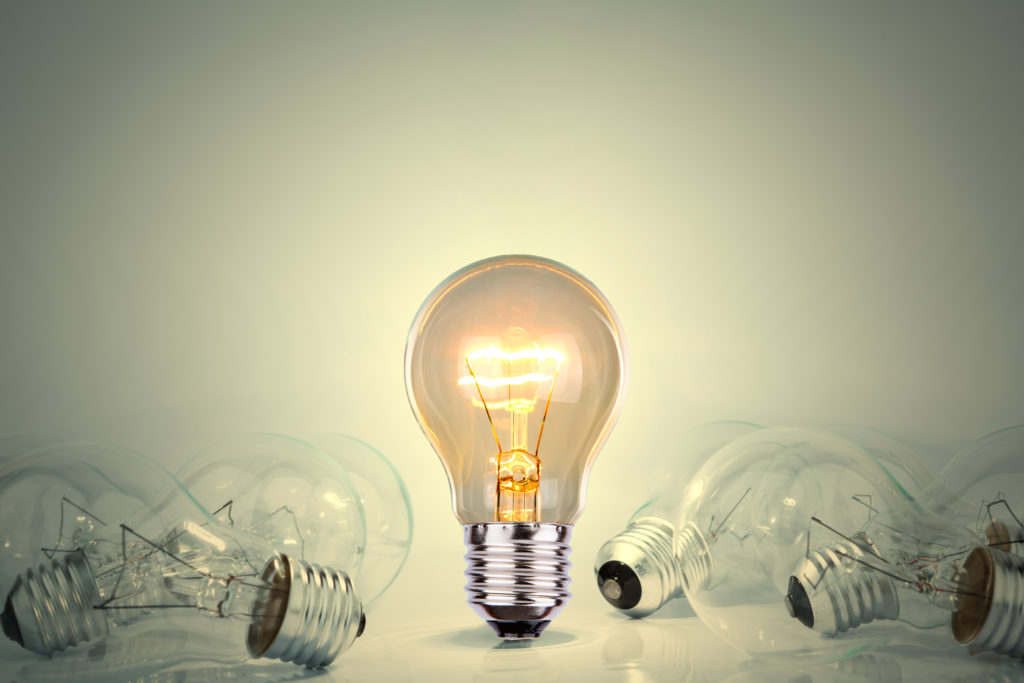
Nothing ruins a quiet, relaxing night at home quite like a power outage. Everyone is settling in for the evening and preparing to unwind. Dinner is on the stove, homework is in progress, someone is taking a shower, and the television and DVR are all set up for primetime enjoyment. Suddenly, everything goes dark. The stove shuts off, hot water runs short, electronics die, and everything comes to a screeching halt. As temperatures in the house fluctuate and everyone’s tempers follow suit, you realize just how much your family relies on electricity to get through each day.
Bringing the Problem into a New Light
When America’s electrical grid first began to take shape during the late 1800s, outages were common. Regardless of impressive advancements, the system was in its infantile stages and still had numerous bugs to be worked out. Over time, things came together, and power losses became fewer and farther between. Nowadays, the nation seems to be returning to the problems of the old days but for the opposite reason, namely the power grid aging and becoming ever more overloaded. Having whole house battery backup installed can help remedy the situation.
Benefits of Having a Backup Power Generator
Electricity drives our lives these days. It’s our link to everything from a steady supply of hot water and entertainment to cooking and cleaning. In spite of this growing dependence, or perhaps because of it, power outages are becoming increasingly common. One report shows the annual number of outages more than doubled every five years from 2000 through 2014, and the rate is gaining steam at an alarming rate. Having a backup system in place for such situations can be beneficial on several levels.
1) Staying Comfortable at Home
Being concerned with comfort may seem a bit petty, but maintaining indoor temperatures and other electricity-related aspects could be considered essential. When it’s cold outside, keeping the house warm helps thwart illnesses. During those hotter months, not having air conditioning and filtration can exacerbate allergies, asthma, and other respiratory conditions. On top of all that, having hot water is vital to sanitation. All this reinforces the fact that electricity is crucial, and outages aren’t conducive to comfort or health.
2) Keeping Food Fresh and Safe
According to a recent write-up, many American families spend $600 on food each month. For some, the cost is much higher depending on the size of the household and where they live. Though non-perishable items easily survive power outages, frozen and refrigerated groceries need to stay cold. If the power goes out, the fridge doesn’t do its job. Extended outages render perishable foods unsafe and can lead to hundreds of dollars in losses.
3) Fostering Productivity
Five years ago, just over three percent of students in the United States were homeschooled. An estimated 24 percent of the nation’s workforce worked from home. Today, particularly in the wake of the COVID-19 pandemic, many school districts report half their students or more have deferred to online school, and many areas are operating on a mandatory hybrid educational system. At the same time, the number of work-from-home personnel has surged by approximately 160 percent.
All that said, working and attending school from home requires reliable computers and constant internet access. When the power goes out, the internet goes with it, and even the best laptops only hold a charge for so long. Having a backup generator can help ensure work and education don’t get put on hold during an outage and eliminate the stress of trying to catch up once the electricity comes back on.

Overall
Less than a century ago, electricity was considered a luxury. Today, it’s a necessity. Unfortunately, the nation’s power grid is feeling the effects of that growing demand. To make matters worse, power outages caused by severe weather are ten times more common than they were just a couple of decades ago. Though you can’t improve the aging electrical grid or influence the weather, you certainly have the power to be proactive and protect your home against outages.



Leave a Reply